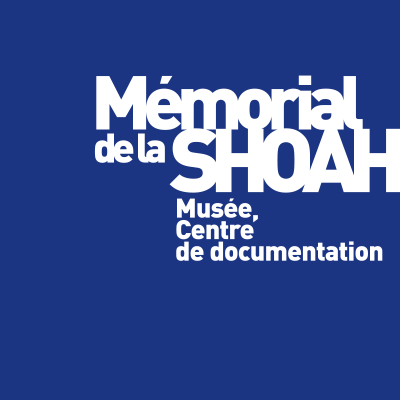Search and consult archives on site
The resources of the Documentation Centre cover the history of the Second World War and that of the Jews of France in the 20th century. The wealth of its sources makes this collection a unique archive and an excellent instrument for studying the destruction of the Jews in Europe.
What can be found at the Memorial Documentation Center?
Since 1945, most of the research on this subject has been carried out in the archives of the Documentation Centre, consulted by historians and journalists alike. French and international justice has also drawn extensively from the archives of the center to investigate the Nuremberg trials, those of the leaders of the 'Final Solution', up to the Barbie trial.
This exceptional documentary fund, regularly enriched since the creation of the Center for Contemporary Jewish Documentation in 1943 by donations and acquisitions of documents from witnesses to the Shoah, consists of archives of more than 30 million pieces, a photo library of some 320,000 images, a rich library of 50,000 references, and 14,000 archival films (including 2,500 testimonies) and 1,500 sound archives.
How to consult the CDJC’s resources?
The cataloguing and digitization of collections have enabled the Shoah Memorial to equip itself with a powerful computerized research tool allowing it to respond precisely to the expectations of researchers as well as to the questions of families. All the databases constituting the catalogue are accessible in the reading room of the Shoah Memorial.
Operation of the reading room
Access
The reading room is accessible to anyone who can justify a search upon presentation of an identity card, after completing an annual registration form. Two rooms equipped with 12 computer stations, 4 microform reader-reproducers and 55 workplaces are available to researchers.
Consultation of documents
The collections of the Shoah Memorial/ Center for Contemporary Jewish Documentation (CDJC) are accessible via various research instruments: the computerized catalog, the paper files, and the inventories.
The documents are consulted exclusively on site, in the reading room according to the modalities specific to each medium (microfilm, digital or original media).
On Thursday evening, Sunday, public holidays and Jewish holidays, only reserved documents are communicated.
As the photographic documents are digitized, no original document is communicated unless specifically authorized. In this case, readers are advised to wear protective gloves for consultation and not to remove the photographs from their pouch.
Also available in open access are the inventories and research instruments of archive centres and libraries with complementary funds, as well as many usual ones.
Help and research service
Prior to their visit, researchers may contact the Centre’s documentalists in order to guide their research:
By mail: Mémorial de la Shoah / Documentation Center, 17 rue Geoffroy l'Asnier, 75004 Paris
By fax: 01 53 01 17 44
By email:
Rules of procedure for the reading room (PDF)
PERFORM AN ONLINE SEARCH
